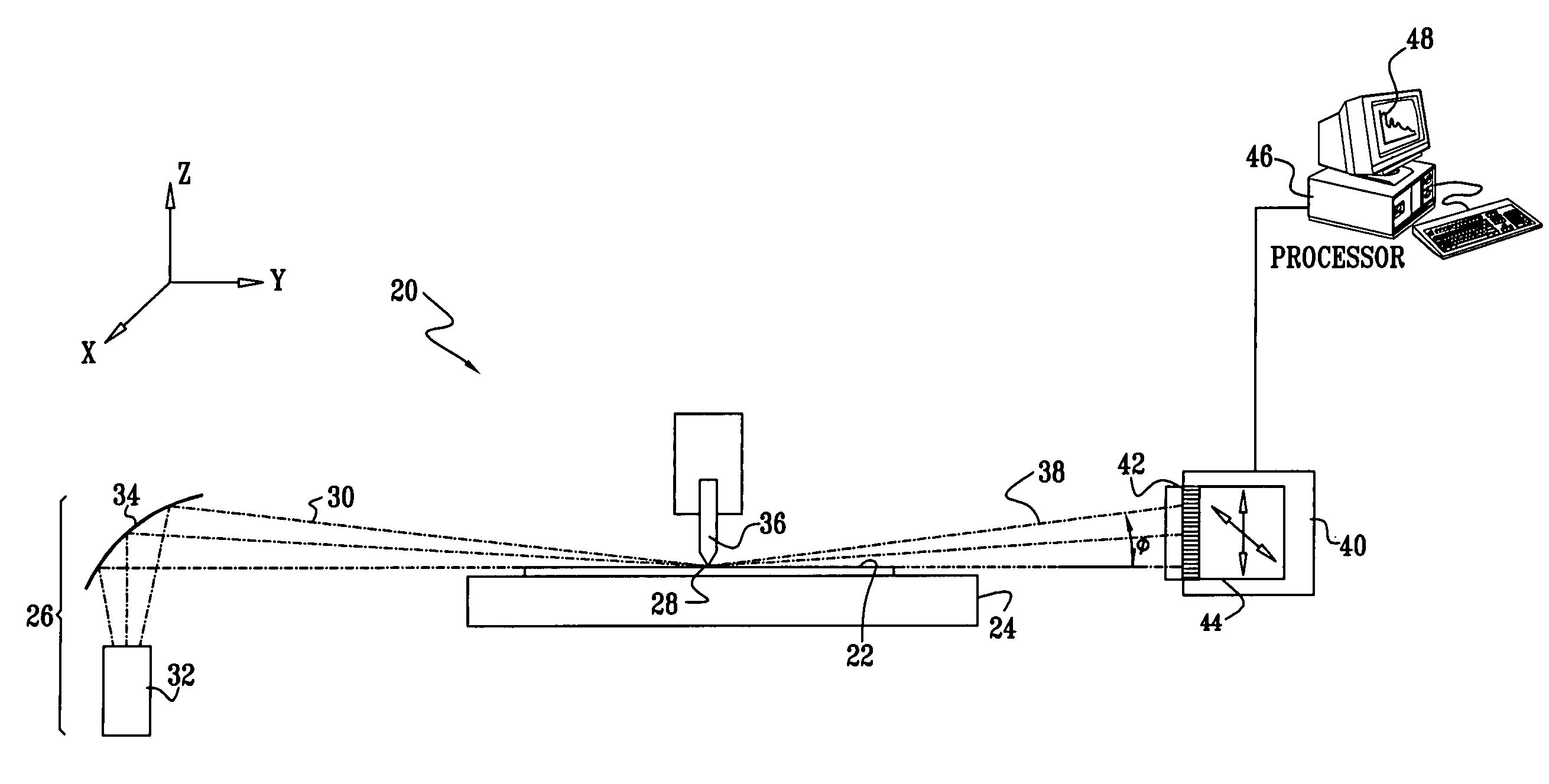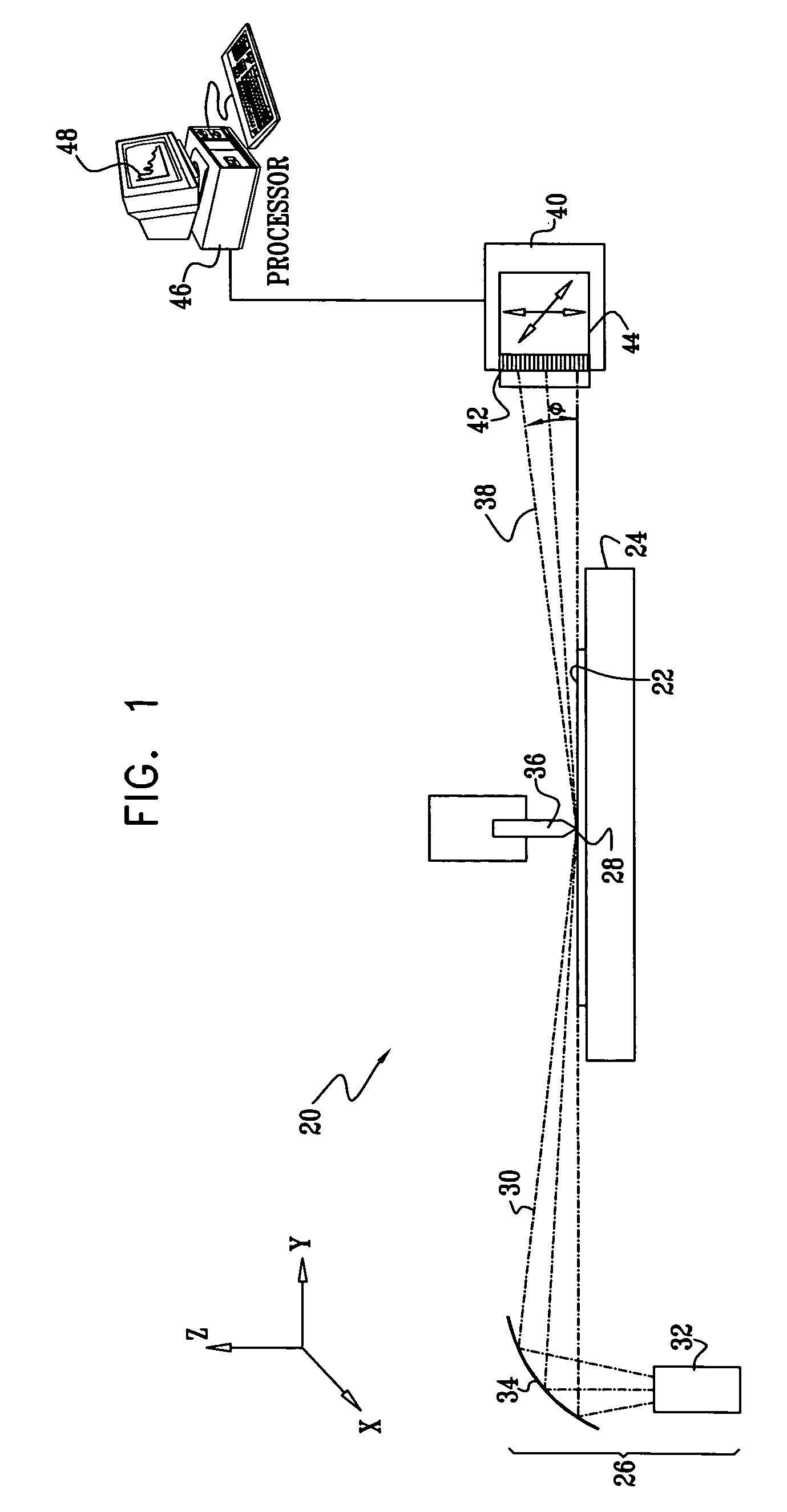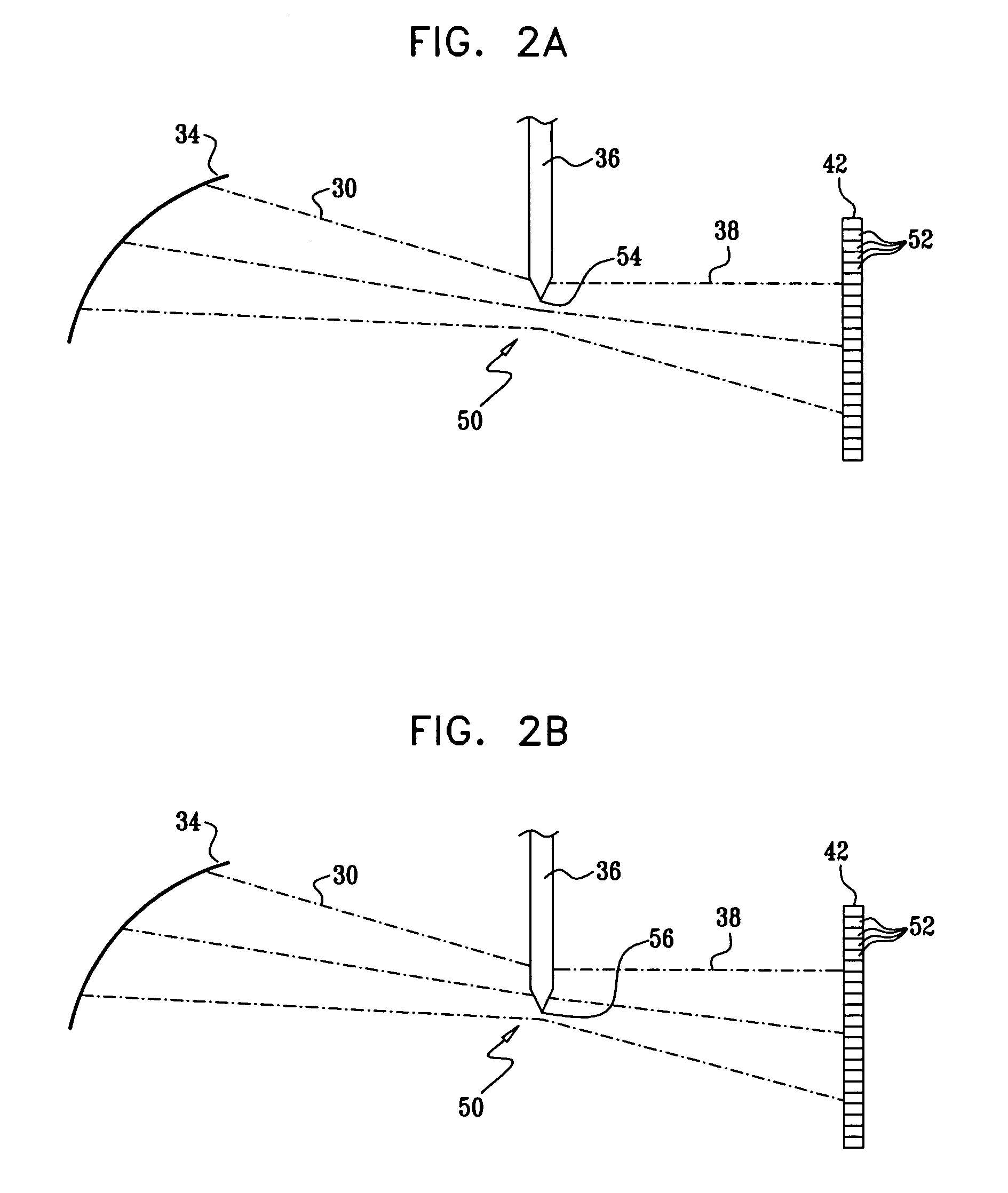Calibration of X-ray reflectometry system
a reflectometry and x-ray technology, applied in the direction of instruments, radiation beam directing means, material analysis using wave/particle radiation, etc., can solve the problems of non-uniform variations in beam intensity, reducing the accuracy of measurement of the xrr spectrum of the sample, and compromising the accuracy of this spectrum, etc., to achieve enhanced precision, the effect of improving the accuracy of the spectrum
- Summary
- Abstract
- Description
- Claims
- Application Information
AI Technical Summary
Benefits of technology
Problems solved by technology
Method used
Image
Examples
Embodiment Construction
[0120]Reference is now made to FIG. 1, which is a schematic side view of a system 20 for X-ray reflectometry (XRR) of a sample 22, in accordance with an embodiment of the present invention. Sample 22 is mounted on a mounting assembly, such as a motion stage 24, allowing accurate adjustment of the position and orientation of the sample. An X-ray source 26 irradiates a small area 28 on sample 22 with a converging beam 30 of X-rays. Typically, source 26 comprises an X-ray tube 32 with monochromatizing optics 34. A number of different types of monochromatizing optics that may be used in system 20 are described in U.S. Pat. No. 6,381,303, whose disclosure is incorporated herein by reference. For example, the optics may comprise a curved crystal monochromator, such as the Doubly-Bent Focusing Crystal Optic, produced by XOS Inc., of Albany, N.Y. Other suitable optics are described in the above-mentioned U.S. Pat. No. 5,619,548. The doubly-curved focusing crystal causes beam 30 to converge ...
PUM
| Property | Measurement | Unit |
|---|---|---|
| angles | aaaaa | aaaaa |
| distance | aaaaa | aaaaa |
| critical angle | aaaaa | aaaaa |
Abstract
Description
Claims
Application Information
 Login to View More
Login to View More - R&D
- Intellectual Property
- Life Sciences
- Materials
- Tech Scout
- Unparalleled Data Quality
- Higher Quality Content
- 60% Fewer Hallucinations
Browse by: Latest US Patents, China's latest patents, Technical Efficacy Thesaurus, Application Domain, Technology Topic, Popular Technical Reports.
© 2025 PatSnap. All rights reserved.Legal|Privacy policy|Modern Slavery Act Transparency Statement|Sitemap|About US| Contact US: help@patsnap.com



